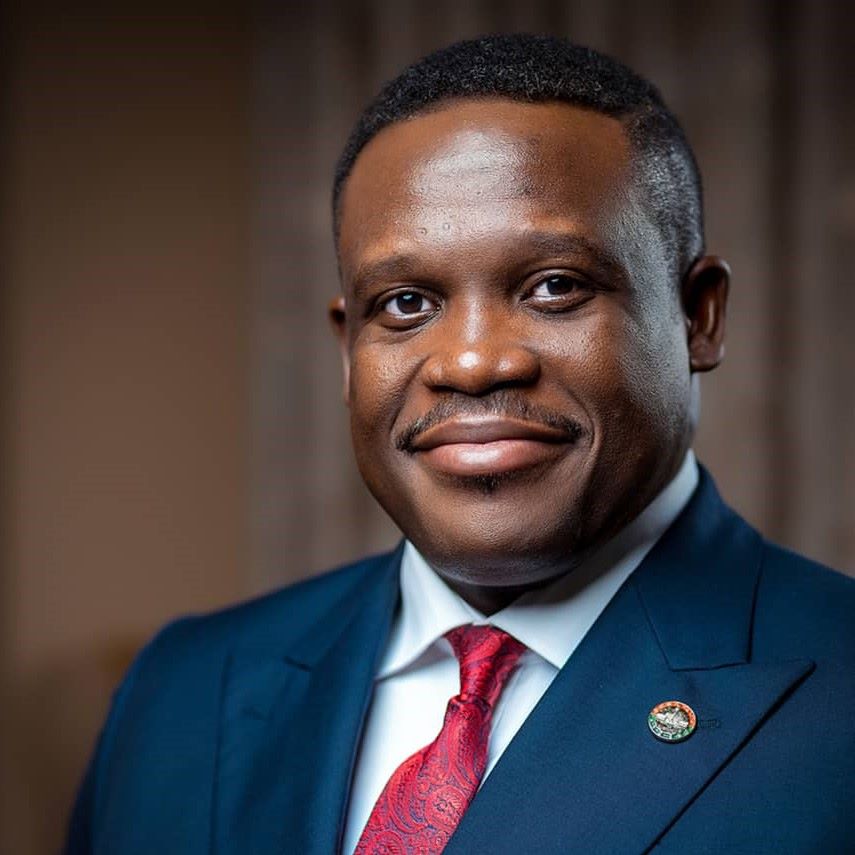
At a high-level media forum in Accra, the Honourable Samuel Nartey (Sam) George, Ghana’s Minister for Communication, Digital Technology & Innovation delivered a blunt wake-up call to the country’s broadcasters.
According to GhanaRegions.com analyst, he said the media landscape has flipped and those who ignore digital will risk irrelevance.
Citing the state broadcaster as a case in point, he told delegates that GBC is making more revenue on their digital page than from adverts on their traditional platforms, and used the observation to urge broadcasters to accelerate digital adoption, skills development and regulatory reform.
Ghana Broadcasting Corporation (GBC) is a state-owned news agency that provides news and information to the people of Ghana and beyond.
What Sam George said and where he said it
Sam George made the remarks during the “Broadcasting at the Crossroads / Africa Media Bureau” dialogue in Accra, a forum that gathered policymakers, regulators and industry leaders to debate the future of Ghana’s broadcasting sector.
He highlighted technological trends artificial intelligence, 5G and hybrid content delivery and argued that they are already changing how audiences consume news and entertainment.
He specifically praised the performance of online teams within legacy stations, saying the digital managers were “driving a lot more traffic” than some newsrooms, and repeated the striking observation that the Ghana Broadcasting Corporation (GBC) is now earning more from its online pages than from traditional-platform advertising.
Why that claim matters
- It signals a structural shift in revenue: Advertising, long the main commercial lifeline for radio and TV, is fragmenting as audiences and advertisers spend more time and money online. The minister’s comparison of GBC’s online receipts with legacy ad revenues underscores that digital monetisation (display ads, sponsored content, video pre-roll, platform partnerships) is now a core business line, not an experimental add-on.
- It is a government prompt for regulatory and policy change: Sam George used the forum to say Ghana will review its broadcasting policy to reflect digital convergence, an acknowledgement that existing rules written for separate radio/TV/print silos no longer fit the market reality. That review could affect licensing, local-content rules, cross-ownership limits and how digital platforms are taxed or regulated.
- It reframes public broadcasters’ role: If GBC historically a publicly funded broadcaster with a public-interest remit is generating meaningful commercial income online, that raises questions about funding models, editorial independence, and how public service obligations will be balanced with commercial incentives.
The state of GBC and Ghanaian broadcasting
GBC is a 90-year-old institution and Ghana’s national broadcaster. Like many public broadcasters worldwide, it faces high fixed costs, competition from private channels, and the challenge of serving both mass audiences and the public interest.
Recent reporting shows GBC is actively building its online presence and experimenting with digital content and platforms part of a broader sector trend where legacy stations create websites, apps, and social media channels to capture younger, mobile-first audiences.
What the data and industry observers say
While Sam George’s specific revenue comparison was presented as an observation at the forum, multiple Ghanaian outlets carried the remark and framed it as emblematic of a broader shift toward “digital first” strategies among broadcasters.
Local news sites and broadcast clips from the AMB forum carried the story and highlighted the minister’s call for broadcasters to invest in technology and skills.
Implications for traditional media houses
- Pivot editorial and product strategy to digital audiences: Invest in social first, video formats, SEO-driven written content, newsletters, and mobile apps that keep users engaged beyond scheduled broadcasts.
- Monetisation mix: Diversify revenue beyond spot advertising, explore membership/paywall models, sponsored branded content, programmatic ad stacks, native advertising, podcast sponsorships and platform partnerships.
- Skills and workflow change: Re-train newsrooms for multimedia storytelling, data journalism and audience analytics; create dedicated digital teams that coordinate with production and programming.
- Technology and infrastructure: Upgrade delivery (CDNs, streaming), adopt analytics and ad-tech, and plan for emerging technologies like AI tools for clip generation and 5G-enabled mobile streaming.
Policy and regulatory considerations
Sam George signalled a forthcoming review of Ghana’s broadcasting policy to account for convergence. Key policy issues to watch:
- Licensing and platform neutrality: Should the same rules apply to broadcasters that stream online and to pure-play digital publishers?
- Local content obligations: How to support Ghanaian content creation while allowing broadcasters to monetise across borders?
- Public service funding: If GBC can raise significant commercial revenue, should that affect its public funding, accountability measures, and editorial safeguards?
- Competition and fairness: Level the playing field so private and public outlets compete fairly for digital ad markets, some of which are dominated by large global platforms.
Reactions and likely next steps
Media leaders at the forum were urged to collaborate with telecoms, tech providers and training institutions to build capacity.
GhanaRegions.com can confirmed that, the minister’s remarks have already been amplified by broadcast clips and social posts, and they are likely to push regulators and industry bodies to accelerate consultations on the broadcasting policy review. GBC and other broadcasters will face pressure to show concrete digital strategies, both to capture revenue and to demonstrate public value.
Caveats and what to watch for
- Single data point vs. systemic trend: The minister’s GBC comparison is a notable indicator but public detail about the exact revenue figures, time period, and accounting treatment has not been published in full by GBC. Independent financial disclosures would give clearer evidence of magnitude and sustainability.
- Ad market dynamics: Digital ad revenue can be volatile (platform policy changes, ad rates, audience attention shifts). A one-year snapshot may differ from a longer-term pattern. Industry players should track multi-year trends.
Recommendations
- Publish transparent digital revenue breakdowns (GBC and large broadcasters): transparency builds trust and informs policy.
- Fast-track digital capacity building: partner with universities and private sector for upskilling in digital production, analytics, and ad-tech.
- Modernise the regulatory framework: rewrite broadcasting rules to be technology-neutral, protect public interest obligations, and enable fair competition.
- Support local content monetisation: incentives (grants, tax breaks, production funds) can help Ghanaian creators scale for both domestic and export markets.
- Safeguard editorial independence: where public broadcasters pursue commercial digital income, clear governance must prevent political or commercial interference.
Bottom line
Sam George’s on-stage observation that “GBC is making more revenue on their digital page than from adverts on their traditional platforms” is less a boast than a provocation: it is a ministerial nudge for Ghana’s broadcasters to confront a fast-moving digital reality.
The remark has already helped shift the conversation from whether digital matters to how quickly the industry, regulators and public institutions will adapt and on what terms. For Ghana’s broadcasting sector, the choice is clear: transform now, or watch audiences and advertisers walk away.




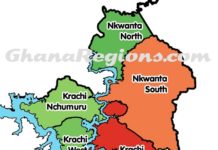














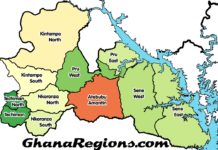



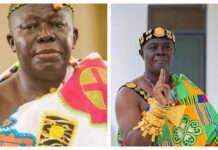











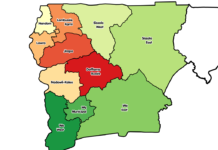
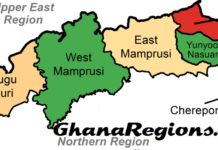












![Morocco knock out Spain on 3-0 penalties to reach FIFA World Cup 2022 quarter-final, Morocco vs Spain (0-0) (3-0) [Video]. Morocco knock out Spain on 3-0 penalties](https://ghanaregions.com/wp-content/uploads/2022/12/Watch-Morocco-vs-Spain-0-0-and-3-0-penalties-218x150.jpg)





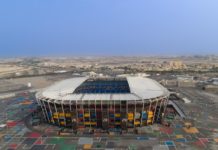









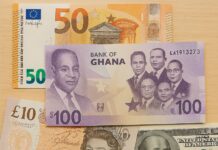









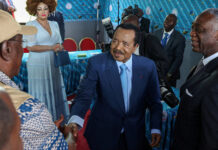







Awesome article.